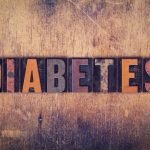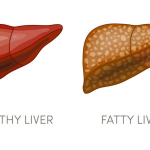Blood Pressure Meds Causing Problems in the Elderly
Node Smith, ND
A new study from the Netherlands is questioning the recommendations for anti-hypertensive medication use in the elderly.1 The study shows that old and frail patients may have increased memory problems as well as increased mortality risk when blood pressure is lowered excessively through pharmaceutical intervention. The authors were awarded the 2018 research prize by the Kollegium für Hausartztmedizin [College of General Medicine] for their work.
Blood pressure guidelines do not account for this broad spectrum
The elderly can be a very difficult population to study, owing to the wide range of patient considerations. The elderly make up the fastest growing age group, and include severely handicapped 75-year-olds, living in care homes to 95-year-olds who are still very active and will likely live another 10+ years. AND, blood pressure guidelines do not account for this broad spectrum – recommending that blood pressure for all individuals over 60 years of age be lowered to, or below, 130mmHg.
Studies and recommendations cannot be applied in a one-size-fits-all for the elderly
The idea that “the lower the better,” applies to many individuals, including the elderly, and studies are able to demonstrate this. However, these studies do not include the very old and frail populations, with multiple illnesses and taking multiple medications. So, these studies, and recommendations cannot be applied across the board to all elderly people.
Study looked at all inhabitants over age 85
This study looked at all inhabitants over age 85 in the city of Leiden in the Netherlands. This included those suffering from dementia, in care homes and those who are extremely frail. The research found that anti-hypertensive medications were associated with an increase risk of mortality and quicker cognitive decline in these patients. There was a correlation between the amount to which the blood pressure was reduced and the higher levels of mortality and cognitive decline – but only in individuals who were taking anti-hypertensive medication.
Source:
- Streit S, Poortvliet RKE, Gussekloo J. Lower blood pressure during antihypertensive treatment is associated with higher all-cause mortality and accelerated cognitive decline in the oldest-old – data from the Leiden 85-plus Study. Age and Ageing 2018; 0: 1–6. https://doi.org/10.1093/ageing/afy072
Image Copyright: <a href=’https://www.123rf.com/profile_andreypopov’>andreypopov / 123RF Stock Photo</a>
 Node Smith, ND, is a naturopathic physician in Portland, OR and associate editor for NDNR. He has been instrumental in maintaining a firm connection to the philosophy and heritage of naturopathic medicine among the next generation of docs. He helped found the first multi-generational experiential retreat, which brings elders, alumni, and students together for a weekend camp-out where naturopathic medicine and medical philosophy are experienced in nature. Four years ago he helped found the non-profit, Association for Naturopathic ReVitalization (ANR), for which he serves as the board chairman. ANR has a mission to inspire health practitioners to embody the naturopathic principles through experiential education. Node also has a firm belief that the next era of naturopathic medicine will see a resurgence of in-patient facilities which use fasting, earthing, hydrotherapy and homeopathy to bring people back from chronic diseases of modern living; he is involved in numerous conversations and projects to bring about this vision.
Node Smith, ND, is a naturopathic physician in Portland, OR and associate editor for NDNR. He has been instrumental in maintaining a firm connection to the philosophy and heritage of naturopathic medicine among the next generation of docs. He helped found the first multi-generational experiential retreat, which brings elders, alumni, and students together for a weekend camp-out where naturopathic medicine and medical philosophy are experienced in nature. Four years ago he helped found the non-profit, Association for Naturopathic ReVitalization (ANR), for which he serves as the board chairman. ANR has a mission to inspire health practitioners to embody the naturopathic principles through experiential education. Node also has a firm belief that the next era of naturopathic medicine will see a resurgence of in-patient facilities which use fasting, earthing, hydrotherapy and homeopathy to bring people back from chronic diseases of modern living; he is involved in numerous conversations and projects to bring about this vision.









